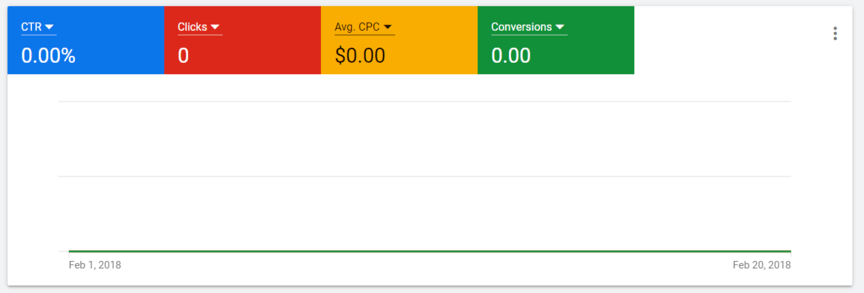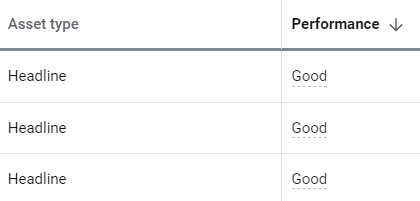-
 7 min. read
7 min. read
-
Summarize in ChatGPT
-
 Sarah Berry
Sarah Berry Lead Web Marketing Consultant
Lead Web Marketing Consultant
- Sarah Berry is a Lead Web Marketing Consultant at one of the largest digital marketing agencies in the USA — WebFX. With more than 10,000 hours of experience, she offers practical insights and strategies to grow your digital revenue. Her work has been cited by Michigan State University, Business Insider, and Ars Technica. When she isn’t polishing her Time Magazine Person of the Year Award, she’s spending time with her flock of ducks.
“How long does it take PPC to work?” It’s an excellent question, and one you’ll hear a lot, whether when pitching company executives to invest in pay-per-click (PPC) or training the newest member of your team on how to use Google Ads. Even though PPC can deliver results overnight, it usually requires at least three months to work. Those initial months serve as a training period for your ad campaign, providing you with valuable data that you can use to improve your campaign’s overall performance.
If you’re curious to learn more about how long it takes to get results from PPC or ad networks like Google Ads, keep reading! Find out why PPC needs a three-month investment (at least!) to deliver results, plus how to maximize those first three months of your PPC campaign.
Questioning the quality of your SMB’s PPC performance?
Get your FREE PPC audit from WebFX today!


How long does PPC take to work?
PPC takes three months to work, on average.
The first three months of a PPC campaign should focus on gathering data from your ads, which you can then use to improve your keyword targeting, audience targeting, and bids.
How long does it take Google Ads to work?
Whether you advertise with Google Ads or Microsoft Advertising, you can still expect a three-month turnaround time when it comes to getting results. Again, no matter which platform you use, you can expect to spend those first three months gathering data to improve your ad campaigns.
Why does PPC take so long to work?
You know how long it takes to get results from PPC, but why does it take PPC so long to work? A PPC campaign usually requires three months to work for a few reasons, including:
A new PPC campaign doesn’t have any data
Sure, when you create a PPC campaign, you gather data.
You research keywords, audiences, and competitors. That data, however, only goes so far when it comes to PPC advertising. The best advertising data comes from your ad campaign.
 That’s one reason why it takes so long to get results from PPC. It takes time for your campaign to generate data, especially if you have a small audience size. Once you have that data, however, you can use it to improve your targeting, keyword selection, and bids.
That’s one reason why it takes so long to get results from PPC. It takes time for your campaign to generate data, especially if you have a small audience size. Once you have that data, however, you can use it to improve your targeting, keyword selection, and bids.
A new PPC campaign doesn’t have any performance history
Whether you’re advertising on Google, Bing, or even Facebook, these ad networks will gauge the quality of your ads.
The quality of your ads (according to these platforms) will influence your ads’ performance in the ad auction, which will impact how often users see them. While ad networks can assign an immediate quality score or rating, your initial score serves as an estimate based on auction-time factors like expected click-through rate (CTR), landing page experience, and relevance. These metrics can change as the platforms gather more data about your ads’ performances.
An ad with 5000 impressions versus 50 impressions, for example, has more data backing its expected quality and usefulness. As your ads gain more impressions and clicks, networks like Google Ads develop a more accurate score, which can help your ads perform better in ad auctions. When you understand how long it takes to get results from PPC, you can explain to company decision-makers why PPC requires a three-month investment, as well as build a PPC strategy that makes the most of those first few months.
What should you do to improve your PPC results?
You know how long it takes for PPC to work, but what should you do in those first three months to set your campaign up for success?
Good news, you’ll find an action plan for each month below, which you can use to improve your strategy.
Check out the top PPC trends for 2026
Month 1: Data
Summary: Maximize your ad data, like impressions, clicks, and conversions, by launching your campaigns with limited targeting. Allow your ads to collect as much information as possible throughout the first month of your campaign.
The first month of your PPC campaign should revolve around gathering data. That’s why PPC experts often recommend launching PPC campaigns with broader targeting.
If you refine your campaign targeting too much at the start, you’ll reach a smaller audience, which means less data. For example, if you run a plumbing company, your ad campaign’s targeting may initially focus on a 50-mile radius from your location. While you could use additional targeting, like demographics, you wait until you have more data to refine your audience, like by age and device.
Start big, and then go small. With this approach, you can focus your ads on the most valuable members over time. Plus, you can back your targeting decisions with data.
You won’t have to guess about targeting mobile or desktop users, for instance. Instead, you can use your data to power your choices.
Month 2: Keywords, targeting, and bids
Summary: Use your ad data to refine your keywords, targeting, and bids. Look for quick wins, like high conversions for mobile devices or low clicks for high-impression keywords, to have an immediate impact on your PPC campaign’s performance and results.
During the second month of your campaign, you can start to make improvements to the following areas:
- Keywords: Assess the performance of your keywords. Look for keywords with high impressions and low clicks, for example, and consider removing them from your campaign. Check for potential negative keywords, which tend to attract people outside your market, too.
- Targeting: Analyze the features of your audience using your ad data. See which devices and age groups, for instance, perform best and update your targeting to hone in on your target audience.
- Bids: Coordinate the assessment of your keywords with your bids. Use data, like your average cost-per-click (CPC) and top-performing keywords, to revise and set manual bids, which can help optimize your ad spend.
With these updates, you should see an immediate impact on your campaign’s performance.
Month 3: Testing and scaling
Summary: Maximize your PPC campaign’s performance by testing your ad copy and scaling your ad campaign. Prepare for how to grow your strategy across ad networks and how to power your campaigns with a bigger ad spend.
In the third month, you can take more steps to upgrade the results of your PPC, like by:
- Testing your ad copy
 You can discover massive ad improvements by experimenting with new ad copy. If you use responsive ads or responsive display ads in Google Ads, it’s easy to test new ad copy. Google will experiment with your headline and description variations for you to find the best-performing ones.
You can discover massive ad improvements by experimenting with new ad copy. If you use responsive ads or responsive display ads in Google Ads, it’s easy to test new ad copy. Google will experiment with your headline and description variations for you to find the best-performing ones.
- Expanding your ad campaigns
Over the past three months, you’ve gathered a lot of data. Use that data to discover new keyword opportunities. In some cases, you’ll find keywords that deserve a dedicated campaign or ad group, so go ahead and create these to maintain an organized account structure.
- Scaling your ad strategy
Month-three is a big month for PPC. It’s when you can fully demonstrate the impact and growth of your PPC strategy. Not to mention, it’s when you can move forward with expanding your strategy.
Set your long-term plan up for success by compiling campaign opportunities, ad networks, and revised ad spend. Whether you’re new to PPC or experienced with PPC, you should follow this three-month plan to get the best results from your online ads. It’ll help your company get the best results from PPC, which can help your business earn more leads and sales at an impressive return rate.
Still not seeing results from PPC?
Find the problem with a free PPC audit.
If you’re still not getting results from PPC, ask for help. Request a free PPC audit and have a seasoned advertiser (we’ve managed more than 650 PPC campaigns) review your account and find ways to improve your results, as well as return on investment (ROI). Call us at 888-601-5359 or contact us online if you have questions about our free, no-obligation PPC audits!
-
 Sarah Berry is a Lead Web Marketing Consultant at one of the largest digital marketing agencies in the USA — WebFX. With more than 10,000 hours of experience, she offers practical insights and strategies to grow your digital revenue. Her work has been cited by Michigan State University, Business Insider, and Ars Technica. When she isn’t polishing her Time Magazine Person of the Year Award, she’s spending time with her flock of ducks.
Sarah Berry is a Lead Web Marketing Consultant at one of the largest digital marketing agencies in the USA — WebFX. With more than 10,000 hours of experience, she offers practical insights and strategies to grow your digital revenue. Her work has been cited by Michigan State University, Business Insider, and Ars Technica. When she isn’t polishing her Time Magazine Person of the Year Award, she’s spending time with her flock of ducks. -

WebFX is a full-service marketing agency with 1,100+ client reviews and a 4.9-star rating on Clutch! Find out how our expert team and revenue-accelerating tech can drive results for you! Learn more
Try our free Marketing Calculator
Craft a tailored online marketing strategy! Utilize our free Internet marketing calculator for a custom plan based on your location, reach, timeframe, and budget.
Plan Your Marketing Budget

Proven Marketing Strategies

Proven Marketing Strategies
Try our free Marketing Calculator
Craft a tailored online marketing strategy! Utilize our free Internet marketing calculator for a custom plan based on your location, reach, timeframe, and budget.
Plan Your Marketing Budget
What to read next




